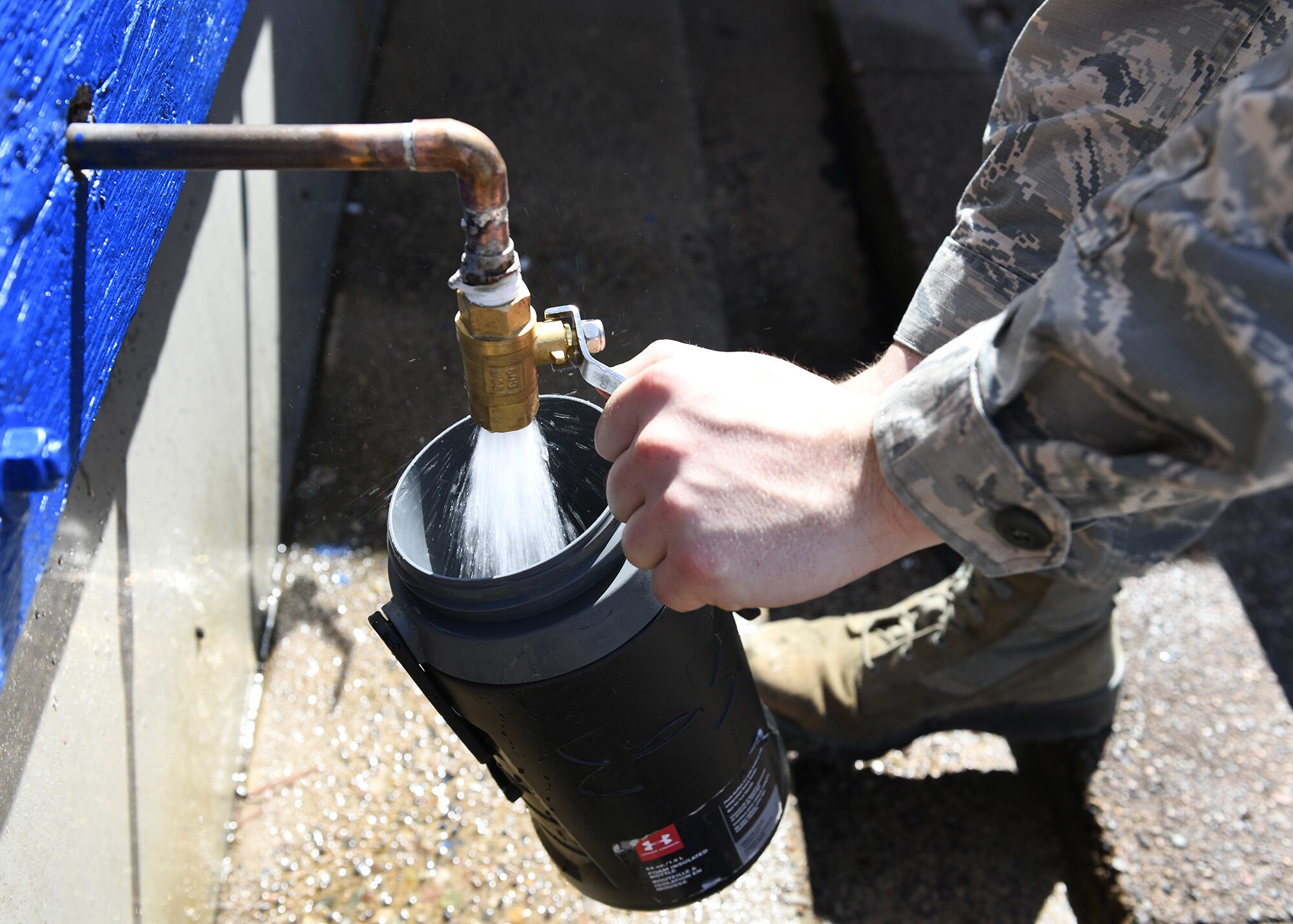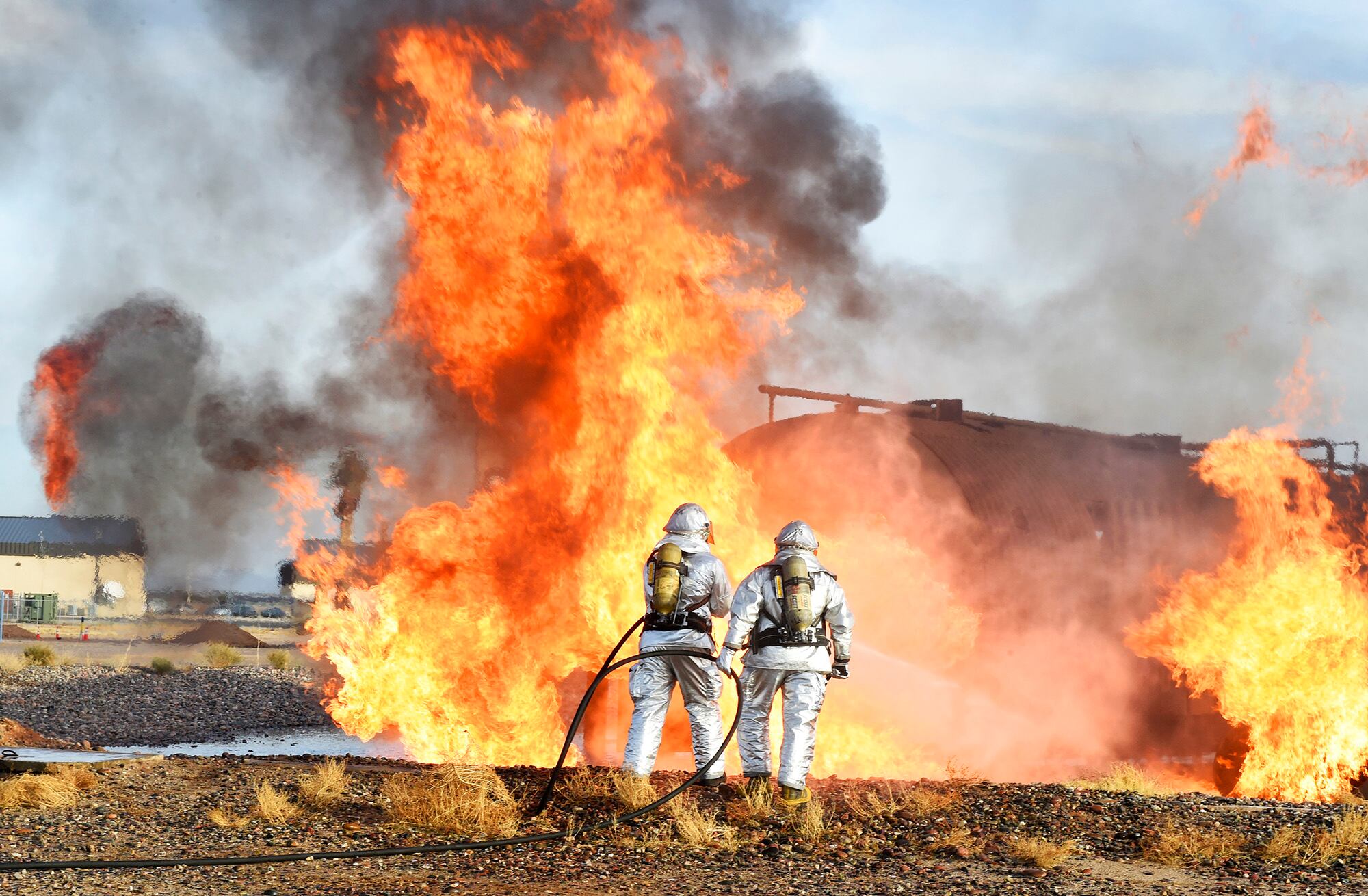PHOENIX — The head of Arizona’s environmental agency called on Luke Air Force Base in metro Phoenix to help stop the spread of a plume of chemicals contaminating the area’s drinking water after recent testing discovered high levels of compounds commonly found in a firefighting foam once used there.
Misael Cabrera, director of the Arizona Department of Environmental Quality, told a public meeting his agency could work with the U.S. Air Force to stop the underground movement of the chemicals he said are linked to cancer and other health problems.
Cabrera praised the base for distributing bottled drinking water in recent days to thousands of residents affected by the contamination. But he said a longer term solution is needed to stop the problem, just as a hospital can save a patient by “stopping the bleeding as fast as you can.”
RELATED

The Arizona Corporation Commission, the agency that regulates utilities, called the emergency meeting to talk about the recent discovery the chemicals had surpassed acceptable levels set by the U.S. Environmental Protection Agency.
Testing of wells south of the base have detected the chemicals since 2016 but they have not registered at such high levels.
Commissioner Anna Tovar has been investigating the problem since it was made public last month.
“I want to make sure the residents and businesses near the base can trust the water coming out of their taps,” Tovar said before the meeting.
Luke Air Force Base said in February that studies showed high levels of contaminants had affected drinking water for about 6,000 people in roughly 1,600 homes plus several neighboring businesses.
The base has recommended that people in the affected area use bottled water for drinking and cooking but deemed tap water safe for bathing and laundry.
In the meantime, a contractor is delivering drinking water to homes until a long-term filtration facility can be set up later this spring, a base spokesman said last week.
Similar contamination tied to the use of firefighting foam dating back to 1970 through 2016 has been found in water supplies near dozens of military sites in Arizona, Colorado and other states, triggering hundreds of lawsuits.
Growing evidence that it is dangerous to be exposed to the chemicals found in the foam has prompted the EPA to consider setting a maximum level for those chemicals in drinking water nationwide.
But they aren’t regulated now, meaning the base cannot be cited even though the EPA says the chemicals stay in the body for long periods and may cause adverse health effects.
The Arizona environmental agency has said it is working with the base, regulators and federal and local officials to ensure actions are taken to ensure healthy drinking water for residents.
“We do appreciate the Air Force’s activities to date,” said Cabrera of the Arizona agency.
Civilian base representative Shimi Mathew said the Air Force is striving to be transparent and is working with a team of scientists in San Antonio to devise a permanent solution.
Mathew said it could eight to 10 weeks to purchase and install a filtration system to deal with the immediate problem.
A statement from Luke Air Force Base last month said testing had detected levels of perfluorooctanoic acid and perfluorooctane sulfonate above the EPA’s health advisory for how much should be consumed in drinking water over a person’s lifetime.
The so-called forever chemicals from a class known collectively as PFAS were found during tests of water from Valley Utilities Water Co.
While Tovar acknowledged that it was not to blame for the contamination problem, she criticized how Valley Utilities had dealt with worried and irate customers.
The compounds are used in many industrial and consumer products and in foam used by commercial industries and the armed services to extinguish fuel fires.
The U.S. Air Force Academy in 2019 said unsafe levels of PFAS were found in groundwater at four sites on its Colorado Springs campus, south of Denver. The chemicals also have been discovered around Peterson Air Force Base in Colorado Springs.





